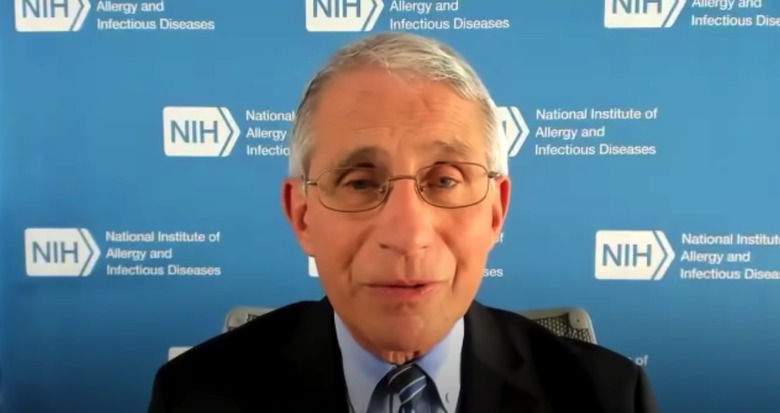Fauci Explains Coronavirus Immunity The Way It Should Have Been Explained From The Start
- A coronavirus immunity study confirmed recent research that said a simple common cold may mount an immune defense that would still be active when fighting COVID-19, and it has nothing to do with the neutralizing antibodies that appear after the infection.
- The immune system produces T cells that can remember pathogens, like the other human coronaviruses that cause regular colds. Those T cells have been found to provide some protection from COVID-19.
- Dr. Anthony Fauci said the findings are promising, and explained exactly how the immune response works when dealing with any pathogen, SARS-CoV-2 included.
A few days ago, a study said that a previous infectious with one of the other human coronaviruses that are responsible for the common cold could give some people COVID-19 immunity. The initial infection that caused a regular cold would create T cells, which would then be able to recognize the novel coronavirus and accelerate the immune response against COVID-19. This could explain why some people develop minor versions of COVID-19, while others experience severe symptoms. The research is in line with other studies released this year and may be helpful in COVID-19 immunity research in the coming years, especially once vaccines arrive.
Before that, a study showed that neutralizing antibodies produced after infection with SARS-CoV-2 would vanish from the immune system, prompting some to worry that reinfection might be possible within a short time. But researchers explained the dual defense mechanism of the immune system that consists of the creation of both antibodies and T cells that can remember the pathogen. Some of the vaccine candidates that have reached the final stage of clinical trials have induced both neutralizing antibodies and T cell responses in volunteers, which is a promising development for long-lasting immunity.
Dr. Anthony Fauci addressed the new study that explained how common colds could induce COVID-19 immunity, explaining coronavirus immunity the way it should have been done from the start.
Fauci said of the new study that it could explain why some people have no COVID-19 symptoms after being infected, while others need hospitalization and risk death.
"One of the things that I don't think has been emphasized very much at all during the attempt to address, scientifically, the COVID-19 outbreak, and vaccine development and testing, is that we've been focusing very exclusively on the antibody test," Fauci told McClatchy about the immunity study. "There's another equally important component of the immune system."
Published in Science, the study was funded by the National Institute of Allergy and Infectious Diseases (NIAID) that Fauci has led for more than three decades.
"If you look at it metaphorically as an army with different levels of defense, the antibodies prevent the virus from getting in. So that's kind of like the first line of defense," Fauci explained. "For those viruses that do escape and infect some cells, the T cells come in and kill the cells that are infected or block them."
A virologist at Columbia University used the same army analogy to differentiate the neutralizing antibodies from the T cells that can both kill infected cells and initiate the production of more antibodies. "None of our soldiers have been trained before this," Rasmussen said. "But the T cell finding suggests that, maybe the cavalry actually is prepared for this virus. Maybe they already know a little bit about how to fight it. And maybe that's helping the overall army stave off the invading virus."
"It's a piece of good news, scientifically, because otherwise we're completely naive to this virus and it's completely brand new," she said. "If there's anything that can give us an edge in fighting it, even within our own bodies and immune systems, that to me is great news and is very promising."
Fauci cautioned that T cells do not live forever, and this could explain why some patients have a delayed immune response to the infection. "It's sort of like a one-two punch," Fauci said. "It's conceivable that the T cells that you've made in response a couple of years ago — three, four, five years ago — when you were exposed to a relatively benign coronavirus that causes the common cold, could actually hang around, and when you're exposed to the SARS-Coronavirus-2, could have some degree of protection."
Someone who hasn't been exposed to a common coronavirus in decades might not have the same T cell memory that a person who develops common colds regularly does.
Bill Gates also commented on the matter over the weekend, telling CNN that exposure to other coronaviruses may explain the differences between various regions of the world. "Within a few months, we'll really understand this," Gates said, adding that the prevalence of coronavirus-carrying bats in Asia might have increased the T cell immunity of the population. "They probably had this cross-protection that meant the spread of the disease was not as strong there."
More research is required to determine exactly how these T cells work in COVID-19 and how they influence the prognosis of the infection.
